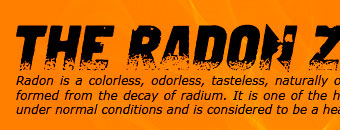 |
 |
 |
||||
|
||||||
| Call: 417-844-0942 | ||||||
|
»Food Irradiation This page describes the importance and benefits of food irradiation. Overview Food irradiation is a food safety technology that eliminates pathogens, including disease-causing germs, from foods. Like pasteurization of milk, and pressure cooking of canned foods, treating food with ionizing radiation kills bacteria and parasites that would otherwise cause food-borne diseases, a world-wide concern. For example, the food that NASA astronauts eat is sterilized by irradiation to avoid the possibility of food-borne illness in space. Remember Food irradiation does not make food radioactive. According to the U.S. Department of Health and Human Services’ Center for Disease Control and Prevention (CDC), studies clearly show that, when done correctly, food irradiation provides a number of benefits: reduces or eliminates disease-causing pathogens does not make food radioactive does not change the nutritional value of the food. However, food irradiation does not eliminate all food dangers and does create some problems: It does not inactivate dangerous toxins which have already been produced by bacteria prior to irradiation. In some cases, such as C. botulism, it is the toxin produced by the bacteria, rather than the bacteria itself, which poses the health hazard. It does not prevent the aging of the fruit and vegetables that can lower their nutritional value, taste and flavors. Irradiating fruit and vegetables to extend their shelf life can make “old” food look “fresh”. Irradiation also unavoidably kills off bacteria that produce the smells that warn you when food is going "bad." Irradiated food does not meet the definition of organic. Three different irradiation technologies exist, each using a different kind of ray: gamma rays (from cobalt-60 sources), electron beams, and x-rays. All three methods use the same concept to accomplish food irradiation. When ionizing radiation strikes bacteria and other microbes, its high energy breaks chemical bonds in molecules that are vital for cell growth and integrity. As a result, the microbes die, or can no longer multiply causing illness or spoilage. |
|
|||||